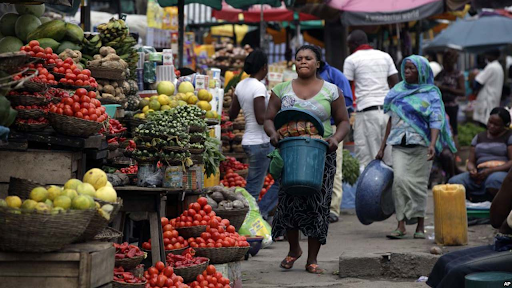Fuel Subsidy Is ‘Gone’ And Food Prices Are About To Go Up
The removal of subsidies on fuel could throw thousands of more Nigerians into starvation. The situation is already dire as some parts of the country are said to be ‘one step away’ from famine already.

News of the intended removal of fuel subsidies took immediate effect at the pump as the price of petroleum almost tripled in some places.
On May 31 fuel stations increased their prices from ₦197 to as high as ₦557 in some states.
The Nigerian National Petroleum Corporation Limited (NNPCL) made the announcement days after Nigeria’s new president, Bola Ahmed Tinubu declared his government intended to remove fuel subsidies barely an hour after his swearing-in.
“The fuel subsidy is gone,” President Tinubu told the audience of dignitaries at Eagle Square.
Funds for subsidies will be diverted to other things like public infrastructure, education, health care and jobs creation, Tinubu said during his inauguration speech.
The details of the mechanics of when the subsidy is to be removed have yet to be made clear, but the reaction in the market was instant as demand peaked and began increasing as people started to react by stocking up in anticipation of further rises.
Knock-on effect
The increase in the price of petrol has knock on effects throughout the economy. It affects the prices of other major necessities including the prices of basic food items significantly, “through those transporting food items,” Mansur Fari, an economist, says.
There is a shortage of food items in the markets already.
Isah, a rice trader in Jimeta Modern Market, Adamawa, northeast Nigeria, told HumAngle: “Food items are already expensive because they have been scarce but once our suppliers transport them with these new fuel rates, everything might rise.”
Fari anticipates the cost of transporting food could at least double, he told HumAngle by phone. Further inflationary pressures will be caused because people have to generate their own power, he said. “Secondly, manufacturers that use generators [that run on petrol] can contribute to the hike.”
“In a nutshell, inflation usually accompanies the removal of petrol subsidies because people are trying to maximise their profit,” he adds.
Famine
Nigeria has been on the list of countries that are ‘one step away’ from famine, according to the United Nations World Food Programme (WFP).
Due to the combined effects of armed conflict, flooding disasters, and the COVID-19 pandemic, 40 per cent of the country’s population are facing food insecurity while dealing with its health impact.
High food prices have also been contributing significantly, driving up hunger and malnutrition especially in the northern part of Nigeria.
Last year, financial intelligence consultant SBM’s Jollof index –an analysis of the cost of staple food ingredients– stated that from July to August 2022 there was a steady increase in costs, “due to unresolved pre-existing drivers of food inflation such as insecurity, intermittent energy shortages and increased fuel prices,” it said.
It added that the average cost of making a pot of jollof rice for a family of five increased by 7.6 per cent, “from ₦9,220 in June to ₦9,917 in september.”
The analysis, which assessed 13 markets across the country, stated that the cost of food items in Wuse Market, located in Nigeria’s capital, had the highest cost of making a pot of jollof rice at ₦13,150. Onitsha market in the southeast had the cheapest price at ₦8,510.
In January, it was estimated that 9 million people living in conflict-affected areas of the North East and North West zones are at risk of starving in the upcoming lean season. These huge figures were arrived at without the consideration of the recent subsidy removal.
Medecins San Frontieres and other health authorities have also warned on the devastating impacts of food insecurity on children.
Over 5 million children living in Borno, Adamawa, Yobe, Katsina and Zamfara are already experiencing acute levels of hunger and malnutrition, the organisation says, warning that, “there is a serious risk of mortality among children attributed to acute malnutrition.”
Support Our Journalism
There are millions of ordinary people affected by conflict in Africa whose stories are missing in the mainstream media. HumAngle is determined to tell those challenging and under-reported stories, hoping that the people impacted by these conflicts will find the safety and security they deserve.
To ensure that we continue to provide public service coverage, we have a small favour to ask you. We want you to be part of our journalistic endeavour by contributing a token to us.
Your donation will further promote a robust, free, and independent media.
Donate HereStay Closer To The Stories That Matter




